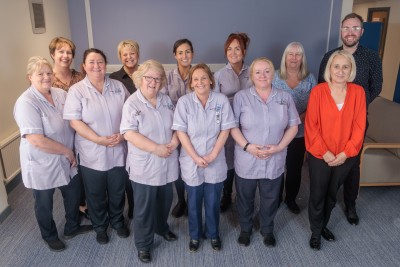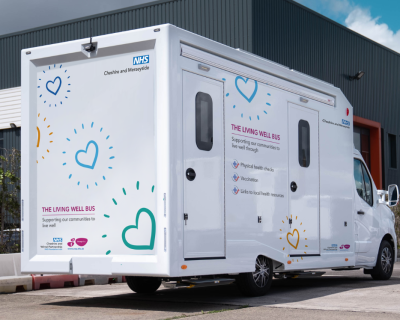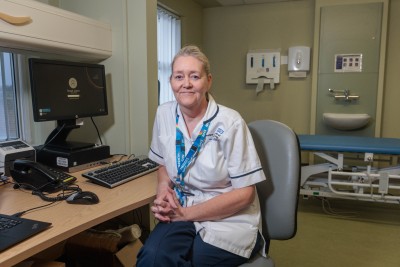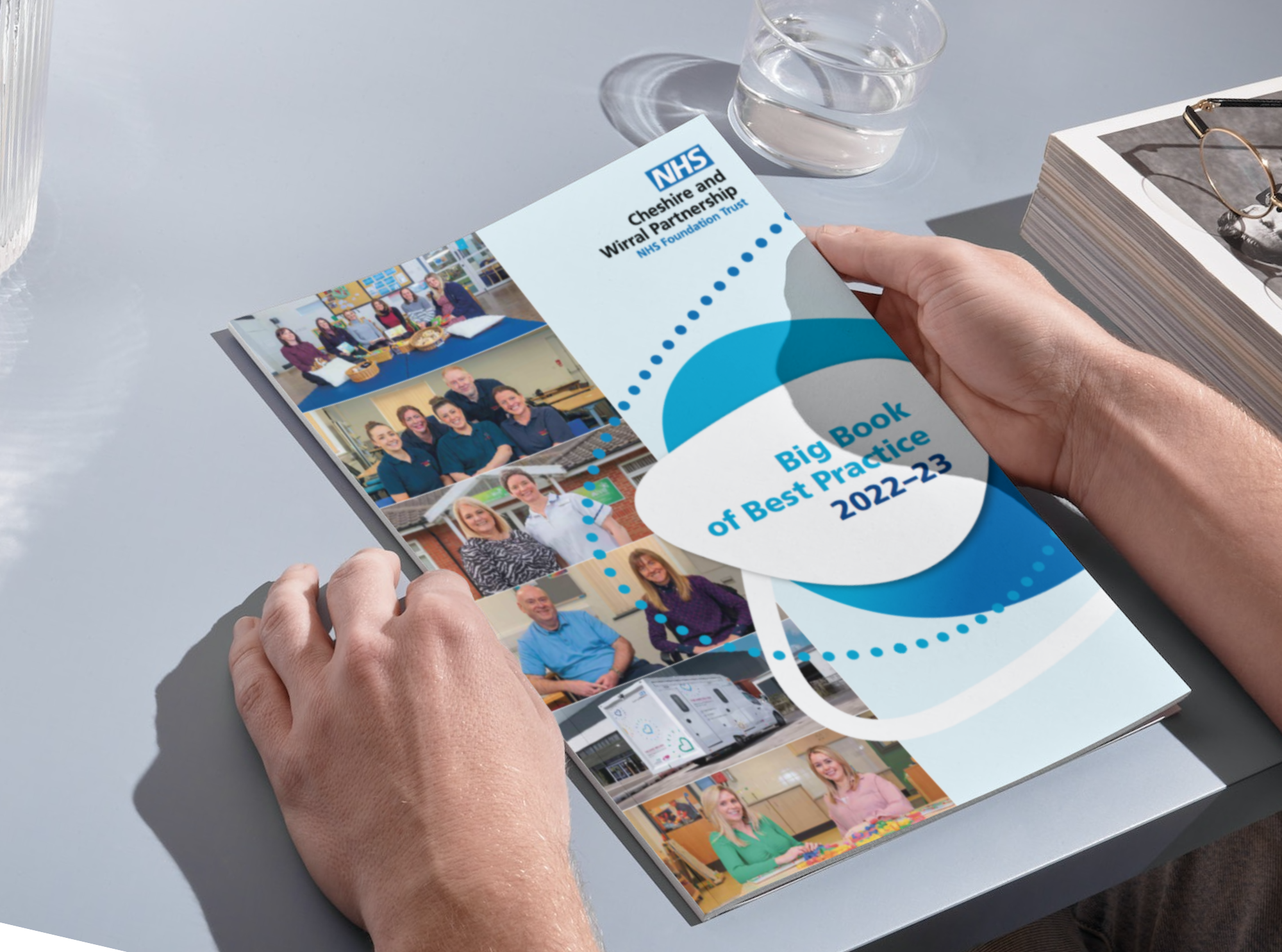Below you can view all the entries that made it into the Big Book of Best Practice 2022-23 from the neighbourhood care group.
Contact details for each project can be found within the entries below. For more information about the Big Book of Best Practice, email cwp.
Team: Cheshire Primary Care Congenital Heart Disease (CHD) group
Contact: sellison@nhs.net
What did we want to achieve?
A greater understanding of patients with congenital heart disease (CHD) and their health needs, including:
- Size and age of the population.
- Their health conditions, compared to patients without CHD.
- If patients were being seen by the most appropriate specialist.
- Raising awareness within primary care of the needs of this patient group, and the specialist services available.
- Working collaboratively with primary care networks, patients, the Integrated care board (ICB), Liverpool Heart and Chest NHS Foundation Trust Adult CHD (ACHD) consultant cardiologist and Liverpool John Moores University
What we did
Using a Qlik data analytics risk stratification tool, insight into the CHD population, disease risk and prioritising person-centred care was achieved. The team also undertook a case note review across one of Ellesmere Port’s primary care networks. Patients were prioritised and individual recommendations for care were suggested to the GP for review, as well as any subsequent onward referrals and creating a surgery register. Wider CHD searches across all of Cheshire were then completed, highlighting CHD prevalence and disease risk factors. A collaborative CHD in Primary Care group was formed, led by CWP staff, with members from the ICB data analytics team, GPs, specialist adult CHD consultant cardiologists, patient representatives LJMU.
Results
This is believed to be the first project to gain understanding of the population with congenital heart disease across primary care. The results show a CHD population of 0.8% with rising numbers. Patients have far greater prevalence of stroke and transient ischaemic attack (TIA), arrhythmias and heart failure of up to three times, compared to the non-CHD population, with these risks occurring at much younger ages.
“This piece of work has helped us to identify patients in our practice population who should have been followed up or who were not coded appropriately and ensure that they are referred into appropriate services and given the support they need to achieve optimal outcomes whilst living with CHD.” – Local GP
Next steps
This work resulted in the project lead being awarded a PhD scholarship at LJMU, with research continuing in this area. Local, national and international presentations have been given along with collaborating with NHS England Specialist Clinical Commissioning. Future work with the Cheshire and Merseyside ICB continues, alongside Liverpool Heart and Chest Hospital Adult CHD service. There are currently no primary care guidelines for CHD. This project has demonstrated the prevalence of the CHD population, the risks they have at much younger ages and the benefits of a proactive approach to ensure lifelong care needs are met. This model can be replicated across the UK with guidelines discussed for future care pathways for shared care.
Team: Community Health Support Team (CHST)
Contact: sue.mcguigan@nhs.net

What did we want to achieve?
Evidence suggests that variation in commissioned end of life domiciliary care is the cause of fragmentation, poor communication and inequities in quality of care for patients. This results in some patients being admitted to hospital unnecessarily during their final weeks of life, with other issues.
The rationale for change was that the current process to secure packages of care using online procurement is inflexible and does not always secure care in a timely manner. The team wanted to improve the consistency of care quality and outcomes for people who wish to die at home, improve patient and carer experience, and improve communication between teams to support care co-ordination and provide person-centred care for those at the end of life.
What we did
The CHST worked collaboratively with colleagues from East Cheshire Hospice and Central Cheshire Intermediate Care Partnership to develop a new service model and referral pathway. Additional band 3 staff have been recruited to provide 24-hour domiciliary care as well as a band 5 nurse to teach and assess end of life. Band 6 staff will assess patients, manage the caseload and support clinical leadership. The team discussed how best to meet patient need and agreed to change working hours to ensure capacity and provide up to four calls a day. Feedback from patients and their families was considered, and a night care service was introduced, where a support worker sits with a patient in their own home to ensure the family can get rest and recouperation. For those patients who live alone this can prevent admission to hospital or a care home.
Results
Access to care packages has improved, particularly for patients in rural areas of Cheshire West where historically there has been a shortage of domiciliary care. Timescales from referral to providing care have improved, usually within two hours and have ensured an equitable service to patients across the Cheshire West footprint whilst also benchmarking clinical practice. The team’s referral target was predicted to be 233 patients per year. The CHST has already facilitated 210 referrals in seven months.
Next steps
The service is monitored closely with the use of key performance indicators and evaluation of data collected from EMIS. This information is being used to consider the skill mix, increasing the number of night carers, and delivering training to improve person centred care and support the wider neighbourhood care group by undertaking clinical tasks and reducing the footfall of staff into the home. This improves efficiencies in face-to-face clinical time and uses the budget in a cost-effective manner.
Team: Living Well Service
Contact: louis.

What did we want to achieve?
Following the profoundly positive impact on identified underserved communities in Cheshire by CWP’s roving COVID-19 vaccination service and recognising the significant overlap between low vaccine uptake and wider health inequalities, the Trust has worked alongside partners within Cheshire and Merseyside’s Integrated Care System (ICS) to launch Living Well. The roving Living Well Service is built on the principles of listening to communities and meeting their needs by bringing the right services to them.
What we did
Since June 2022 the service has expanded to cover all nine place-based systems across Cheshire and Merseyside, delivering 15 outreach clinics per week on three specially designed buses. In addition to COVID-19 vaccinations, Living Well now provides a broad range of physical health checks and mental wellbeing support. The service also acts as a conduit to connect people with other local services.
Results
Since mobilising the full offer across Cheshire and Merseyside in June 2022, the Living Well Service has delivered 380 clinics in identified underserved communities as of January 2023, providing:
- 11,244 COVID-19 vaccines, including 404 first doses and 382 second doses of the vaccine.
- 7,820 individual physical health tests (cholesterol, blood pressure, body mass index, glucose and pulse check).
- 491 referrals to primary care for action.
All clinics have been delivered within areas of identified high deprivation, ethnically diverse communities, refugee communities, homeless shelters, maternity settings, mental health crisis cafes, autism and learning disability support hubs, food banks, male dominated businesses, faith settings, traveller and boating communities.
Next steps
Whilst only having been operational in its current guise for a short period of time, Living Well is already an established part of the Cheshire and Merseyside ICS strategic plan for addressing health inequalities. Now delivering across all place-based systems, the service’s next step is to embed itself further into local support groups and services to deliver more collaborative clinics, focusing on whole-person wellbeing.
Living Well was recently highly commended at the Health Service Journal Partnership Awards in the Estates Optimisation Project of the Year category.
Team: Falls Service
Contact: joanne.

What did we want to achieve?
To provide an outpatient clinic facility with the primary purpose being the identification and treatment of benign paroxysmal positional vertigo (BPPV) and associated vestibular rehabilitation. As part of the physiotherapy assessment, patients are assessed for BPPV if indicated and if positively identified in the Falls Clinic, the physiotherapist is then able to bring the patient back to the Dizzy Clinic at a later date to treat appropriately. Prior to the Dizzy Clinic, patients suspected of having BPPV would not have access to the treatment and would have been referred back to their GP.
What we did
From the start of 2023, the clinic now runs every Tuesday, as well as the first and third Thursday mornings of the month. Patients are referred to the physiotherapist, who then contacts them to arrange a face-to-face appointment in the clinic. They will have an initial assessment, followed by treatment interventions as appropriate.
Results
Referrals into the clinic come from the Falls Prevention Clinic, Community Geriatrician Team, Community Care Team Therapists and Audiology Department at the Countess of Chester Hospital.
A total of 31 referrals have been received since May 22 to date (as of January 2023). Assessments of balance, walking speed and self-reported dizziness are among some of the outcome measures used to indicate levels of improvement. Treatment interventions can range from a single treatment to several and include balance and functional elements to achieve optimal outcomes. Results can be dramatic, with some patients reporting improvements with vertigo and resulting function. Overall reduction in falls risk is also a factor. One patient reported that she felt “like a new woman”.
Next steps
Now the clinic is established, it will be important to develop referral pathways. Potential referral routes will include audiology and ear, nose and throat, as well as the community care teams directly into the Dizzy Clinic. Improved knowledge of the service into primary care will also open up referrals into the Falls Prevention Clinic from GP services where the patient will have access to a holistic multidisciplinary team assessment, as well as the potential assessment of BPPV.
Education of BPPV and vestibular rehabilitation will continue across the community teams in the form of in-service training, as well as visiting teams to promote the Falls Clinic and Dizzy Clinic, and referrals into them.
Team: Long Covid Service
Contact: ceri.whitehead@nhs.net
What did we want to achieve?
The aim was to develop a brand-new service working with patients with ongoing COVID-19 symptoms. At the time, there was little knowledge about its presentation, symptoms, treatment, prognosis and how we as clinicians could make a difference to these debilitated and often ‘unseen’ patients. The team showed huge commitment and resilience from the outset in changing practice, researching treatments and reaching out to other areas of expertise to help improve the service.
What we did
- A patient-centred, multidisciplinary service was developed, helping people with long COVID to access clinical support with a multitude of symptoms and provide a holistic approach.
- The team draws expertise from many areas, including occupational therapy, respiratory physiotherapy, general practice, cardiac rehabilitation and talking therapies.
- Established external partnerships with English National Opera Breathe and Nuffield Health.
- Set-up a peer support group to address social isolation and give hope for future recovery.
- Educated patients, families and employers (including occupational health teams), by promoting awareness of long COVID at wellbeing events.
Results
- CWP was the first trust to set up a face-to-face peer support group.
- A digital screening tool was introduced to reduce waiting times.
- Service users were supported to claim the correct benefits.
- Raised awareness of long COVID with MPs and government ministers.
- Supported patients with correct breathing patterns to improve quality of life.
- Help managing fatigue and brain fog.
- Flexible, bespoke approach to patients at all times.
Feedback has included:
“Thank you for inviting me to the group. It was so good to be there on so many levels. It’s the first time in years that I’ve not felt alone with my illness and symptoms. Solidarity is such a powerful thing and I came away feeling motivated.”
Next steps
- Funding has been confirmed for 2023/24.
- Service will develop and look at ways to contact those less visible, harder to reach groups.
- The team plans to attend further health events, launch drop-ins and coffee mornings.
- Continue to raise awareness amongst other health professionals.
Team: Willaston GP Surgery
Contact: ellie.
What did we want to achieve?
Following the lifting of the COVID-19 pandemic safety guidance, Willaston GP Surgery wanted to reinstate their Patient Participation Group (PPG) meetings safely and gradually, to increase patient feedback, provide opportunity for the PPG members to meet the surgery team and most importantly, be heard.
There were some negative feelings between the patients and the surgery following the pandemic and the aim of the PPG meetings was to rebuild this relationship in a proactive manner. This was verbally expressed on many occasions to the reception team. The aim was to achieve an open and honest channel of communication between the surgery and its patients.
What we did
Willaston staff met with the PPG chair and two other PPG members at the practice in May 2022 as the first post-COVID meeting. This was repeated again with a small group on 15 August and this then expanded for the meeting on 17 October 2022, which was located at Willaston Methodist Chapel with around 50-60 attendees, with further meetings planned.
Results
Reinstating the PPG meetings has opened various routes of communication and patients regularly speak with the surgery team, are happy to provide feedback and know who they can speak to within the surgery.
The relationship between the patients and the surgery staff has improved. Patients are informed in a proactive manner and can see that the surgery is learning from mistakes and improving processes continually. Patients thanked the Willaston Surgery team at the end of the October meeting, saying that the meetings have instilled their faith in the surgery team again.
Next steps
Further PPG meetings are for 2023. The Willaston Surgery team will continue to provide more information via an email circulation to PPG members who have provided an email address, via the surgery website, over the phone and also when patients come in and have queries.
It is hoped that this level of attendance at PPG will be sustained for engagement purposes, continued improved relationships and to reach as large an audience as possible with important updates regarding Willaston Surgery.
Honorable mentions
With nearly 100 entries received for the Big Book of Best Practice 2022-23, we have unfortunately been unable to include every entry in the final book. However, many of the projects – despite not being selected for full publication – deserve to be celebrated for the fantastic outcomes achieved.
You can view the honorable mentions for the neighbourhood care group below:
- Hospital at Home - virtual wards
